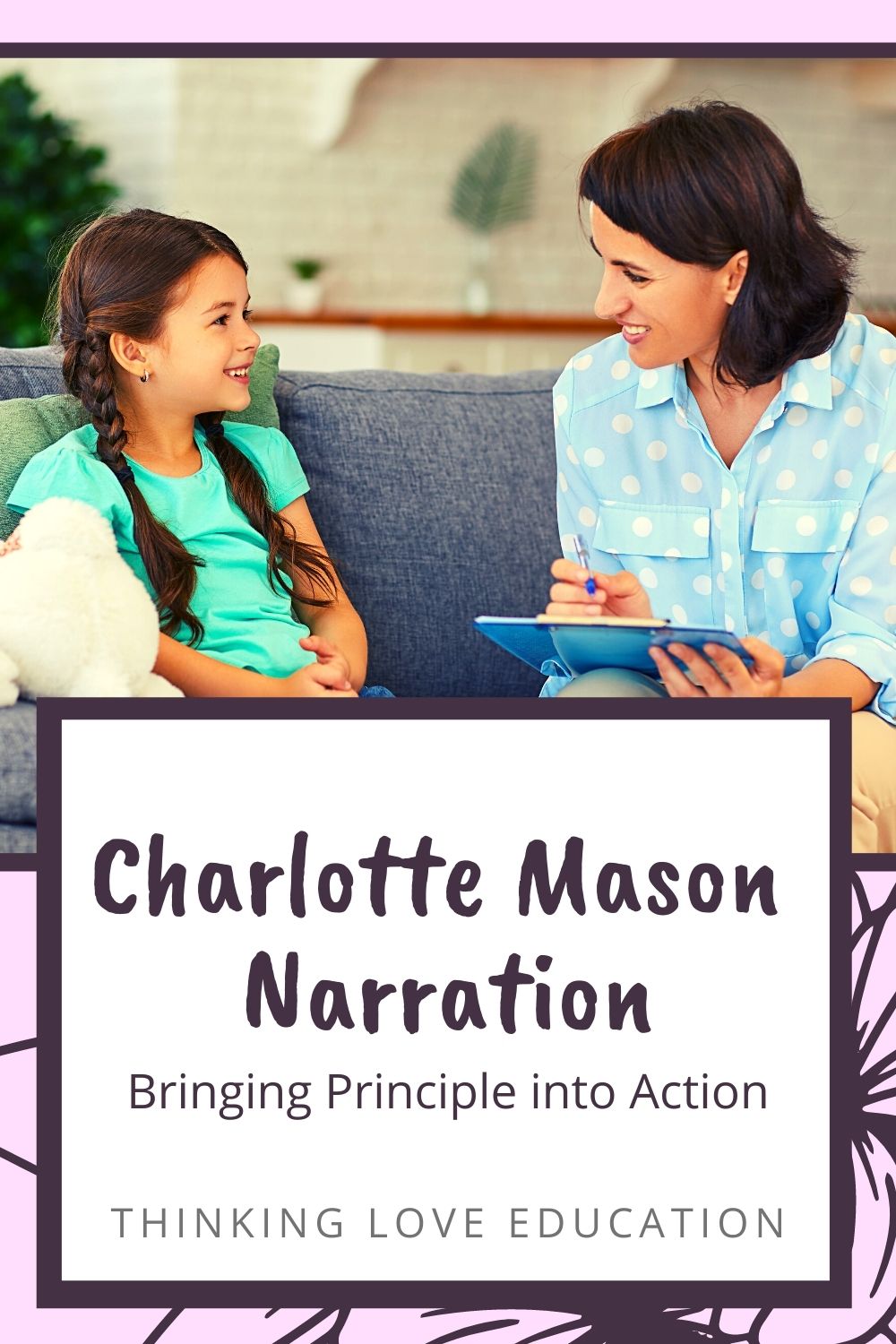Amy and Leah are back for a new season of the Thinking Love Podcast. Our theme for the next few months is Charlotte Mason in the Real World because sometimes we struggle when our ideals meet our reality. To kick off this season, we are chatting about one of the most practical Charlotte Mason ideas: narration. Narration seems so simple, but it’s not always straightforward, so we dig into what it is, why we are doing it, and how to help our kids if they are struggling.
Listen now, or scroll for show notes!
Narrating is not the work of a parrot, but of absorbing into oneself the beautiful thought from the book, making it one’s own and then giving it forth again with just that little touch that comes from one’s own mind.
Miss E.A. Parish, quoted in The Story of Charlotte Mason
Misconceptions about Narration
[3:03] Narration is one of those things that seems like it should be easy, and it’s actually very challenging, particularly if our children are pushing back on it or if we have differently wired kids who struggle with it.
[5:07] I saw a meme recently that said “There’s no better way to kill the love of reading than to force your child to tell you what they just read.” Yikes!
What is Narration (according to Charlotte Mason)?
[6:51] From the 1886 Webster’s: Narrate: to tell, rehearse, or recite, as a story; to relate the particulars of; to go through with in details, as an incident or transaction, to give an account of
[9:33] When I listen to narrations, I take mental note of what she remembered and what she didn’t.
Why should we have our kids narrate?
[14:29] From School Education: “’In all labour there is profit,’ at any rate in some labour; and the labour of thought is what his book must induce in the child. He must generalise, classify, infer, judge, visualise, discriminate, labour in one way or another, with that capable mind of his, until the substance of his book is assimilated or rejected, according as he shall determine; for the determination rests with him and not with his teacher…The simplest way of dealing with a paragraph or a chapter is to require the child to narrate its contents after a single attentive reading”
[19:10] Narration felt like it was more genuinely THEIR learning, rather than me forcing them to learn. It is really an example of the phrase, “There is no education but self-education.”
Narration and the Habit of Attention
[22:12] I want my kids to be able to choose to bring their attention to something and to have the mental muscle to do it. But also, I think it’s important to learn to listen.
[25:08] There is room for conversation, though.
Troubleshooting Narration
[27:13] The children must enjoy the book.
[30:32] We lean into the habit of narrating and into the desirability of the books to motivate children to engage with them. We practice masterly inactivity, too – we do let children have their own response to the reading.
Mentioned in this Episode
Charlotte Mason’s volumes are linked on our library page.
Podcast on the method of a lesson
Podcast on living books


